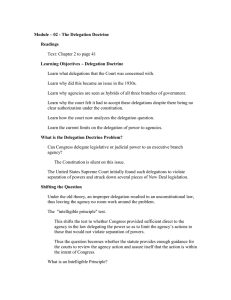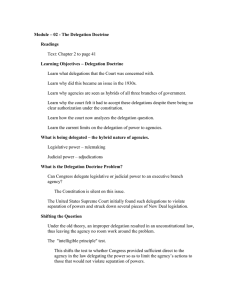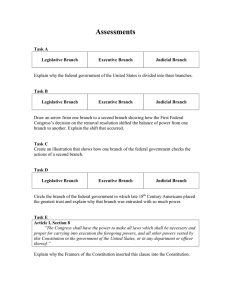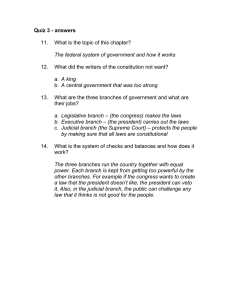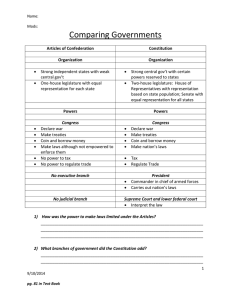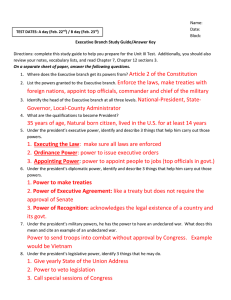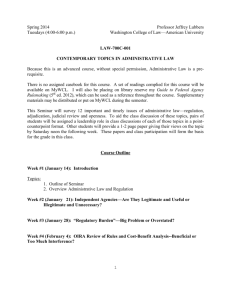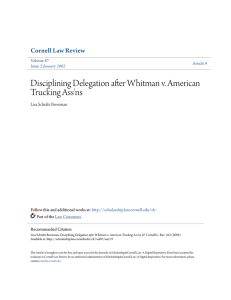Chapter 2 1
advertisement
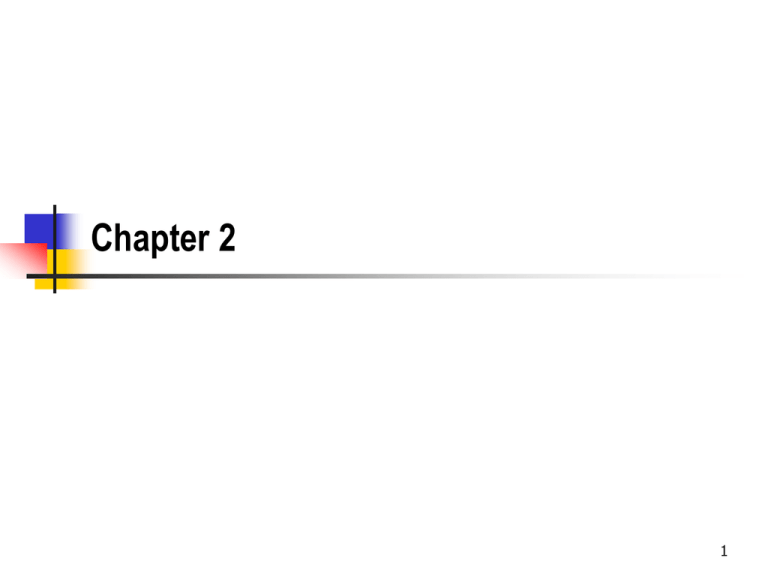
Chapter 2 1 The Delegation Doctrine Just History – So Far This played out during the mid-1930s when Congress created several new agencies to fight the Depression. The Switch in Time that Saved Nine. 2 Learning Objectives – Delegation Doctrine Why did this become an issue in the 1930s? What were the delegations that the Court was concerned with? What would be the impact on government function if the court had persisted in finding delegations unconstitutional? How did the court change its analysis of these cases to solve the delegation issue? 3 What is the Delegation Doctrine Problem? Can Congress delegate legislative or judicial power to an executive branch agency? The Constitution is silent on this issue. The United States Supreme Court initially found such delegations to violate separation of powers and struck down several pieces of New Deal legislation. 4 Shifting the Question Did Congress sufficiently direct the agency in the law delegating the power so as to limit the agency’s actions to those that would not violate separation of powers? The judicial review question: Does the statute provide enough guidance for the court to review the agency actions to assure that they comply with Congressional intent? The "intelligible principle" test. This is all you need to know about the history 5 "Intelligible Principle" - Rulemaking If the legislature does not provide an "intelligible principle" to guide the court in reviewing agency action, the courts will strike down the agency action Under the old version of the delegation doctrine, the law was unconstitutional without regard to whether there was sufficient guidance to the agency. Now the court will review the law and look for a standard to review the agency’s actions. In practice, the court does not need to find much. 6 What is an Intelligible Principle? Specific guidance is best Congress will provide very specific guidance if it wants to limit agency discretion - the ADA General/ambiguous guidance is also usually OK ‘‘in the public interest" Depends on whether context can provide meaning We will explore this in the Chevron and FDA cigarette cases 7 Delegation Doctrine - Adjudications Old test was public versus private rights New Test (Commodity Futures Trading Commn. v. Schor, 478 U.S. 833 (1986) [1] “the extent to which the ‘essential attributes of judicial power’ are reserved to Article III courts, and [2] conversely, the extent to which the non-Article III forum exercises the range of jurisdiction and powers normally vested only in Article III courts, [3] the origins and importance of the right to be adjudicated, and [4] the concerns that drove Congress to depart from the requirements of Article III. Is the administrative law judge (ALJ) acting as an Article III judge? 8 Judicial Review as a Check on Delegated Powers There is a right of judicial review of rules to determine if the agency has the legal authority to issue them and if they properly supported by the record. There is a constitutional right to due process protections in adjudications, and usually a right to judicial review of the decision. As we will see, Congress can limit judicial review in some circumstances. 9 Practical Considerations The court is very unwilling to find adjudications exceed constitutional authority under this test. This may be because Congress has not passed laws which test the outer limits of agency authority There are state law fights over this - Wooley There are limits on the transformation of criminal matters into agency adjudications Traffic court can be civil, but only if there is no jail time Large civil fines push the edge, especially if there are also criminal penalties for the same act Administrative detentions are OK, but not for punishment Tuberculosis, denial of bail, mental health commitments Guantanamo Bay detentions are administrative 10
